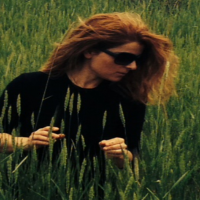Research Article
Issue Editorial Board


I am currently Asisstant Professor of Biosystem Engineering at the University of the Van Yuzuncu Yil in Turkey. I am researcher with expertise in plant water consumption, water use, drip irrigation, and wastewater use. I have extensive university-level teaching experience in Irrigation and Drainage, Principles of Irrigation Engineering, Water deficit and Agriculture. My research interests are in soil- plant-water interactions, with focus on abiotic stress in plants. The abiotic aspects of my research relate to physiological effects of drought, and salinity stress on plants. My work has direct positive impact on SG2 (Zero Hunger), SDG13 (Climate Action) and partly SDG1 (No Poverty). My articles in the last 3 years Journal of Environmental Management (IF=8.91), Agricultural Water Management (IF=6.611), Water, Air, Soil Pollution (IF= 2.984), Journal of Water Climate Change (IF= 2.803), and Gesunde Pflanzen ( IF=2.082) was published in the journals. I am an Associate Editor of Yuzuncu Yil University Journal of Agricultural Sciences (2019- ).







 Web
Web

















Prof. Dr. Younes Rezaee Danesh is the faculy member at the Department of Plant Protection, Faculty of Agriculture, Urmia University, Iran. He had several visiting research periods in different countries in different years. He was also worked at the Soil, Fertilizer and Water Resources Central Research Institute in Ankara, Turkey as a leader of a HORIZON 2020 project funded by the EU during the years 2018-2021, and now as the visiting scientist on a project funded by TUBITAK in Van, Turkey from January 2022. His main scientific interests are mycology, plant pathology, and biological control with a special focus on symbiotic (mycorrhiza-, and mycorrhiza-like) as well as plant growth promoting fungi, and special emphasis on their application as eco-friendly bio-fertilizers and bio-stimulators in plants and for inducing plant resistance against different abiotic and biotic stresses. He had a series of international collaborations with Iranian, Russian, Finnish, US, Japanese, Chinese, Italian, Indian, Thai, Austrian, Turkish, and Hungarian partners. He has a list of highly ranked international scientific publications with more than 600 citations. He is also involved as tne permanent member in different national and international scientific societies. He is also acting as a member of the Editorial Board in several Journals. During the scientific career, he received numerous awards as the Best Researcher and Best Scientist.








 Web
Web






 Web
Web








 Web
Web






Aim & Scope
The Journal of Agricultural Sciences of Yuzuncu Yil University (YYU J AGR SCI) is committed to disseminating significant scientific advancements through the publication of original research articles, comprehensive reviews, short communications, and technical notes in the field of agricultural sciences. Embracing the principles of open access, the journal ensures that its content is freely available for reading, downloading, sharing, and use without financial or legal barriers, in accordance with the standards set by the Directory of Open Access Journals (DOAJ).
The journal covers topics such as; Plant production (biotechnology, field crops, horticulture, plant protection, etc.), Animal production (animal and aquaculture production, etc.), Soil sciences (soil ecology, soil physics, soil chemistry, etc.), Others (agricultural irrigation, agricultural structures, agricultural energy systems with sustainable farming systems, etc.).
Author Guidelines
Author Guidelines
Submission Guidelines
Manuscripts submitted to Yuzuncu Yil University Journal of Agricultural Sciences (YYU J AGR SCI) must fully comply with the journal’s formatting and submission requirements. Submissions that do not adhere to the prescribed templates or include data older than 5 (five) years will be returned to the authors without being subjected to peer review.
The journal accepts review articles on a highly selective basis.
All manuscripts must be prepared in accordance with the journal’s author guidelines and submitted via the online submission system, accompanied by the ORCID identifiers of all contributing authors. Manuscripts that fail to meet these prerequisites will not be considered for editorial evaluation.
Manuscript Preparation
• A title page must be prepared according to the journal’s template.
• The main manuscript should follow the Research Article or Review Article template.
• The language of publication is English, and submissions must demonstrate high-quality scientific writing.
Content and Style Requirements
• The research should be accessible to both general scientific readers and specialists in the field.
• The research problem must be clearly stated, with a critical analysis of existing literature and a well-defined hypothesis.
Writing style:
• Use clear, concise, and precise language.
• Avoid unnecessary information, redundant references, and over-citation of well-known facts.
• Previously published data should be cited with proper attribution to formulas and results.
• References older than 10 years should be avoided unless essential for the study.
Formatting and Technical Requirements
• Journal abbreviations in references must follow Web of Science standards.
• Abbreviations should be spelled out at first use, followed by the abbreviation in parentheses.
• Units of measurement:
• Use SI units (International System of Units).
• Decimal fractions should be indicated with a decimal point (e.g., 1.25).
• Thousands should be separated by a space (e.g., 100 000).
• Figures and images must be presented in high resolution (300 dpi, JPG or TIFF format).
Additional Requirements for Field Studies
Field studies in crop production must present results from at least two growing seasons and/or multiple locations to ensure robustness and reproducibility.
Compliance and Editorial Process
• Manuscripts that do not follow the journal’s guidelines will be returned for corrections before peer review.
• Incomplete submissions or those with missing information will not be processed.
For complete submission guidelines and policies, please visit the Journal Information page or contact the Editorial Office.
Ethical Principles and Publication Policy
Ethical Responsibilities of Editors and Associate Editors
1. Editors and Associate Editors are responsible for evaluating submitted manuscripts based on their significance, originality, academic rigor, clarity, and alignment with the journal's scope. Upon initial review, if a decision is made to reject a manuscript, they must provide the authors with a clear and justified explanation for the rejection.
2. Editors must inform authors within 30 days whether their submission will proceed to peer review. The final decision regarding publication rests with the Editor-in-Chief or designated Associate Editors.
3. All submissions must undergo an initial plagiarism screening. Manuscripts found to contain potential plagiarism must be rejected at this stage.
4. Unpublished data, methodologies, or findings from submitted manuscripts must not be used by editors, reviewers, or any other party without the explicit written consent of the authors.
5. Manuscripts must be assessed solely on their intellectual merit, without bias related to the authors' social, cultural, economic, or religious backgrounds.
6. Confidentiality must be maintained throughout the review process; submitted manuscripts should only be shared with the authors, reviewers, Associate Editors, and the publisher.
7. Editors must assign Section Editors with relevant expertise and ensure that manuscripts are sent to qualified reviewers with appropriate knowledge in the subject area.
8. Reviewers should be encouraged to conduct evaluations impartially, scientifically, and objectively.
9. Editors are responsible for maintaining and updating a diverse pool of reviewers who demonstrate objectivity, adhere to deadlines, provide constructive feedback, and comply with ethical guidelines.
10. If a conflict of interest is identified between a submitted manuscript and an author, reviewer, or institution, the manuscript must be withdrawn from further consideration.
11. The final decision on manuscript acceptance or rejection lies with the Editor-in-Chief, who must base this decision on the work’s originality, scholarly contribution, and overall quality.
Ethical Responsibilities of Reviewers
1. Competence and Timeliness
Reviewers who determine they lack sufficient expertise to evaluate a manuscript or are unable to complete the assessment promptly must inform the editor and withdraw from the review process.
2. Confidentiality
Reviewers must maintain strict confidentiality regarding submitted manuscripts. They shall not disclose any part of the work to unauthorized individuals or discuss its contents without the editor’s explicit permission.
3. Avoidance of Privileged Information
Privileged information or ideas obtained during peer review must remain confidential and must not be used for personal advantage. Reviewers are prohibited from utilizing unpublished data from the manuscript for their research.
4. Objectivity and Constructive Criticism
Evaluations should be conducted objectively, with critiques based on scholarly merit rather than personal bias. Reviewers must support their assessments with clear, evidence-based reasoning.
5. Identification of Overlapping Publications
If reviewers identify significant similarities between the submitted manuscript and previously published works, they must immediately notify the editor.
6. Conflict of Interest
Reviewers must recuse themselves from evaluating manuscripts where competitive, collaborative, or other relationships with the authors could compromise impartiality.
Ethical Responsibilities of Authors
1. Originality and Scope
Submissions to Yuzuncu Yil University Journal of Agricultural Sciences must represent original research within the journal’s scope. Simultaneous submission to multiple journals is prohibited.
2. Data Integrity and Accessibility
Authors must ensure that data collection adheres to ethical guidelines. Upon request, raw data underlying the study must be provided to the editor, reviewers, or publisher.
3. Compliance with Publication Ethics
Manuscripts must not violate scientific ethics, including plagiarism, data fabrication, falsification, redundant publication, salami slicing, improper authorship attribution, or non-compliance with ethical standards for animal/human research.
4. Accuracy and Attribution
Submitted works must include comprehensive references and avoid fraudulent claims. Unpublished theses or proprietary data may not be cited without explicit permission.
5. Disclosure of Conflicts of Interest
Authors must declare all funding sources, institutional affiliations, or potential conflicts of interest related to their research.
6. Authorship Criteria
All individuals who contributed significantly to the study’s conception, execution, or analysis must be listed as co-authors. Minor contributors may be acknowledged separately.
7. Corresponding Author Responsibilities
The designated corresponding author is responsible for communication with the journal and must ensure all co-authors approve manuscript revisions and corrections.
8. Post-Publication Corrections
Authors are obligated to promptly notify the journal of significant errors in published works and cooperate in issuing corrections or retractions.
9. Collective Accountability
All authors share responsibility for the manuscript’s content. Non-contributors must not be included as authors, and significant contributors must not be omitted.
Violations of Scientific Research and Publication Ethics
1. Falsification
Fabricating or reporting research data without actual experimentation or scientific investigation constitutes falsification. This includes presenting fictitious results as empirically derived findings.
2. Distortion
Distortion involves manipulating research records, methodologies, or data to misrepresent experimental processes or outcomes. This includes selectively omitting data inconsistent with the research hypothesis, altering results to align with theoretical expectations, or tailoring findings to suit the interests of funding entities.
3. Plagiarism
Plagiarism is the unauthorized appropriation of others' intellectual work, including ideas, methods, data, text, or figures, without proper attribution, thereby violating academic integrity and intellectual property rights.
4. Fraud
Fraudulent practices encompass generating fabricated data, falsifying research outcomes, or misrepresenting incomplete studies as finalized work for publication or presentation.
5. Duplicate Publication (Redundant Publication)
Republishing previously reported research in another journal without prior editorial approval constitutes duplicate publication, undermining the originality and transparency of scholarly work.
6. Salami Slicing (Data Fragmentation)
Inappropriately segmenting a single coherent study into multiple publications to artificially increase output, particularly for academic promotions, without cross-referencing, violates research integrity and misrepresents scientific contributions.
7. Unethical Authorship Practices
Unfair authorship includes:
• Listing individuals who did not contribute meaningfully (gift authorship),
• Excluding legitimate contributors (ghost authorship),
• Unjustified alterations to author order,
• Removing contributors' names post-submission, or
• Coercively including non-contributing individuals due to their influence.
8. Additional Ethical Violations
Other breaches include:
• Failing to disclose funding sources or institutional support,
• Non-compliance with ethical guidelines for human/animal research,
• Violating patient confidentiality in medical publications,
• Undisclosed conflicts of interest in peer review (e.g., reviewing one’s work),
• Premature disclosure of unpublished data,
• Misusing research resources or facilities,
• Baseless accusations of ethical misconduct.
Price Policy
Yuzuncu Yil University Journal of Agricultural Sciences (YYU J AGR SCI) does not charge any processing and publication fees for the publication process of the articles. Additionally, the author has the right to access any published article, including her/his own article.
Indexes
Citation Indexes
Other Indexes
Journal Boards
Editor-in-chief

 Web
Web
Co-Editors

 Web
Web

Editorial Boards

 Web
Web
University of Presov, Faculty of Humanities and Natural Sciences, Department of Ecology, Presov, Slovakia
Prof. Dr. Ivan Salamon: university teacher and scientist, is the managing investigator of several R & D projects of medicinal and aromatic plants. He is the principal author of the patent – the freeze-drying technology (lyophilization), as unique methods of anthocyanin isolation from medicinal plant small fruits, Chamomile variety “LIANKA” with the high content of /-/-α-bisabolol and Peppermint variety “KRISTINKA” with the high content of menthol of essential oils. Both varieties obtain the Certificates by the Community Plant Variety Office (CPVO) in Angers, France.




Section editors


Agricultural Microbiology Researcher (RTD-b) at the University of L’Aquila and Head of Agro-Environmental Microbiology Laboratory (Environmental Sciences Section, Dept. MeSVA, L’Aquila, Italy) since 2023. She graduated in Biology at the University of L'Aquila (Italy, 2014). She attended the PhD in Food Sciences at the University of Teramo, performing 6 months of research experience at the IPOA laboratory of the University of Miguel Hernández de Elche (Spain). She received her PhD with honours and the Doctor Europaeus certification in 2018. Her main research projects are on the selection, characterization, and exploitation of beneficial bacteria for sustainable productions (agriculture, biopolymers, and bioremediation) and molecular characterization of environmental biomes. She published 54 scientific articles in several indexed international journals, in which she appears as the first author or as the corresponding author. She is the coordinator of several national scientific projects and supervises the laboratory activities of research fellows and residents. She has participated in several projects dealing with the geomicrobiological characterization of mineral deposits and the application of microbial-based formulates to produce or recover biominerals. Her main activities concern the isolation, characterization, and application of useful strains for biotechnological applications and sustainable agriculture. She is currently involved in several national and international projects.





 Web
Web
...


Prof. Riyaz Sayyed is a Professor in the Department of Biological Sciences and Chemistry at the University of Nizwa, Nizwa, Oman. He has 21 years of teaching-Research-Administrative experience. He served as the President of the Indian Chapter of the Asian PGRP Society from 2017 to 2023. He is Associate Editor of Environmental Sustainability (Springer) and Vegetos (Springer), Guest Editor of Sustainability (02 SI), Frontiers in Microbiology (01 SI), Frontiers in Sustainable Food Systems (01 SI), and Academic Editor of PeerJ. He has authored over 365 research papers in high-impact international journals and has edited 35 books with leading publishers such as Springer, Elsevier, Wiley, and CRC Press. Elsevier and Clarivate have consecutively listed him among the Top 2% of highly cited researchers for three years and in the Top 1% of Highly Cited Researchers among 6,886 researchers worldwide, respectively. Prof. Sayyed is a Fellow of the Royal Society of Biology (FRSB), the Indian Phytopathological Society (FIPS), the Association of Agricultural Technology in South East Asia (FAATSEA) and Member of American Chemical Society (ACS). He is a visiting scholar at INTII International University in Malaysia and an Expert consultant at Qassim University in Saudi Arabia. He has trained over 100 graduates, postgraduates, and Ph.D. students under his guidance. Prof. Sayyed has successfully completed 10 R&D Projects and 02 mega projects for building institutional infrastructure and facilities. He successfully organized seven international conferences in the country and abroad and has been an invited speaker at many international conferences in India, Southeast Asia, and European countries. Prof. Sayyed has received numerous prestigious national and international awards. He is an active Life Member of various professional societies and has been Organizing Chair for 06 International conferences abroad and 06 National conferences in the country. He has succesfully completed 10 Research and Development Projects and 02 mega projects for instutional development.




Tarım makineleri, Tarım işletmeciliği ve Tarımda ve enerji kullanımları hakkında çalışmalar yürütmektedir.


 Web
Web



2002 – biologist-valeologist, Armavir State Pedagogical University
2006 – PhD in Entomology
2006 - Researcher
2018-now –Senior researcher of Laboratory of Agricultural Entomology (All-Russian Institute of Plant Protection)

Assoc.Prof.Dr./Marwa A.A. Fayed is interested in Phytochemical and Pharmacognostical studies of medicinal plants, isolation of bioactive constituents from different natural sources using advanced chromatographic techniques (separation on VLC, column chromatography using different adsorbents as RP, Sephadex, Cellulose or Polyamide and separation using PC), structure elucidation of naturally isolated compounds using different spectroscopic techniques.
- Ph.D. in Pharmaceutical Sciences (Pharmacognosy), Assiut University (2013).
- M.Sc.in Pharmaceutical Sciences (Pharmacognosy), Assiut University (2004).
- B.Sc. in Pharmaceutical Sciences, Assiut University (1998).
- Appointed as Lecturer of Pharmacognosy and Phytochemistry, Faculty of Pharmacy, University of Sadat City in December 2016.
- Appointed as Associate Professor of Pharmacognosy and Phytochemistry, Faculty of Pharmacy, University of Sadat City in April 2020.
- Appointed as Head of Pharmacognosy and Phytochemistry, Faculty of Pharmacy, University of Sadat City in July 2020.
- Member of the academic editorial board of the Universal Journal of Pharmaceutical Research (UJPR),
- Associate editor in the Journal of Agricultural Sciences and editor in Pharmaceutical Sciences & Analytical Research Journal.
- A reviewer in many prestigious journals as: molecules, biomolecules, Natural Product Research, Journal of Inflammation Research, Indian Journal of Natural Products and Resources and many others.
- More recently, has developed a significant interest in monitoring the pharmacological effects and mechanism of action of different classes of chemical compounds isolated from natural sources and their possible role in medicine.
Research/scholarly interests:
- Understanding and having good skills in structure elucidation of the isolated compounds from any natural source based on classic and recent spectroscopic methods: (UV, IR, 1H-NMR,1H-1H COSY, 13C-NMR, DEPT 13C-NMR, HSQC, HMQC, EI-,+FAB- and MALDI-TOF-MS) in addition to the comparison of the physical, chemical and chromatographic characters of these compounds with authentic samples.
- excellent skills in botanical studies of medicinal plants through their macro- and micromorphological characters of their different parts (leaves, roots, seeds…..etc.).
- excellent skills in extraction, fractionation, and isolation of active constituents from natural medicinal plants.



animal breeding and genetics

 Web
Web
His publication details, citation records, review and editing works is available from below profile links;
Google Scholar
ResearchGate
Scopus Author ID: 57221769055
Web of Science: AAD-1778-2020
Loop profile: 756420
ORCID


 Web
Web
Kyrgyz - Turkish Manas University, Faculty of Agriculture, Kyrgyz

Mozhgan Farzami Sepehr, PhD
Associate Professor - Plant Physiology
mfsepehr48@gmail.com
mozhgan_farzami_sepehr@sfu.ca
• (+1) 7789199347
• LinkedIn: https://www.linkedin.com/in/mozhgan-farzamisepehr-59b22b19b/
• Google Scholar Profile Link: https://scholar.google.com/citations?user=Mln6-zUAAAAJ&hl=en
• Web of Science Research ID: AAD-5049-2019
• Scopus Author ID: 55243438200
• ORCID: 0000-0002-6976-1233
• Profile Link (Research Gate): https://www.researchgate.net/profile/Mozhgan-Farzamisepehr-2
h-index: 11
i10-index: 11
Education
Doctor of philosophy (PhD) in plant physiology
Science and Research Branch, Islamic Azad University, Tehran, Iran. 2002
• Title: The study of physiological responses of some cultivated plants to salinity and cadmium.
Master of Science (MSc) in plant physiology
Tehran Shomal Branch, Islamic Azad University, Tehran, Iran.1998
• Title: Study of Breaking Dormancy in Seeds of Rheum ribes, Tissue Culture of Different Parts of Seedling and Effect of Different Factors on Production of Secondary Metabolites in Calli.
Bachelor of Science (BSc) in Botany
University of Urmia, Urmia, Iran. 1994
• Title: Biosystematics Studies on Some Cultured Cereals in West Azerbaijan of Iran.
Personal statement
My passion for plants and their complex responses to the environment has been a guiding force throughout my academic and research career. The ability of plants to adapt to abiotic stresses, produce invaluable secondary metabolites, and serve as tools for environmental remediation has always fascinated me. This deep interest in plant physiology has driven me to explore innovative approaches to better understand and control these unique properties for both scientific progress and real-world applications. In my current research activities, I am studying salinity tolerance in plants, investigating their physiological and biochemical responses to heavy metal and salinity stresses, and exploring plants potential in phytoremediation of oil and heavy metal contaminated soils. These studies are aimed at addressing pressing global challenges such as environmental pollution and food security. Through this work, I am contributing to understanding how plants adapt to harsh environments and using this knowledge to develop resilient crop species and sustainable solutions for environmental restoration. In addition to these activities, my research has focused on the extraction and purification of secondary metabolites, including anthraquinones, catechins, essential oils, proteins, amino acids, and lipids, from medicinal plants in nature, grown in greenhouse conditions and grown through tissue culture. These compounds, with their therapeutic and industrial applications, underscore the critical role plants play in human health and the economy. My work has involved optimizing extraction protocols, isolating bioactive fractions, and characterizing their biochemical properties, all of which have improved my technical skills and deepened my understanding of plant metabolism. Plant tissue culture and regeneration are other areas where I have made significant contributions. By working on germination and dormancy of seeds, I have explored the mechanisms governing plant development and regeneration. My experience in plant transformation has equipped me with the expertise to introduce novel traits, offering possibilities for improved crop performance and enhanced stress tolerance. These diverse yet interconnected research activities reflect my dedication to unraveling the complexities of plant biology. My academic journey has provided me with a strong foundation in plant physiology, biochemistry, and molecular biology, as well as a clear understanding of their applications in addressing global challenges. Looking forward, I am excited to build on this foundation by enhancing in creative research that bridges fundamental science and applied solutions. Whether through developing crops that can succed under extreme conditions, discovering new bioactive compounds, or advancing phytoremediation techniques, I am committed to making meaningful contributions to plant science and its potential to transform the world.
Positions and Honors
2021-2024 Member of the Specialized Working Group for Planning the Plant Sciences, Biochemistry, and Biophysics Department at Islamic Azad University.
2023-2023 Scientific committee of international symposium on microorganisms and the biosphere.
MICROBIOS-Bishkek – Kyrgyzstan. https://www.manas.edu.kg/en/news/4186
2021-Present Member of the Evaluation Team for Scientific Journal Offices in the Fields of Science, Engineering, and Agriculture at Islamic Azad University.
2020-Present Editorial Advisory Board member, Manas Journal of Agriculture Veterinary and Life Sciencese, ISSN: 1694-7932. KYRGYZ-TURKISH MANAS UNIVERSITY. https://dergipark.org.tr/en/pub/mjavl/board.
2020-Present Scientific reviewer in the pre-defense of the focused doctoral thesis in Plant Physiology major. Islamic Azad University, Iran.
2020-Present Member of the Specialized Interview Committee for the PhD Program in Biology – Plant Physiology. Islamic Azad University, Iran, since January, 2020.
2016-2024 Associate Professor, Islamic Azad University of Saveh, Iran.
2024- Present Research Associate, Department of Biological Sciences, Simon Fraser University, Burnaby, BC, Canada
2010-Present Editor in Chief of Iranian Journal of Plant Physiology, Iran, since October 2010. https://sanad.iau.ir/en/Journal/ijpp/Staff/15899
2008-2016 Assistant Professor, Islamic Azad University of Saveh, Iran.
2007-2009 Foreign Editorial board members, Journal of Integrative Plant Biology, China.
2007-2008 Post-doc fellow, Center for Research in Biotechnology for Agriculture(CEBAR), Institute of Biological Science, Faculty of Science, University of Malaya, Malaysia.
2002-2007 Assistant Professor, Saveh Branch , Islamic Azad University, Saveh, Iran.
1993-2000 Lab Assistant: Teacher Training University, Tehran, Iran.
Teaching Experience
Courses:
Laboratory
• Plant Physiology Laboratory
• Botany Laboratory
• Microscopic Sectioning Techniques
• Plant cell and tissue Laboratory
• Principles of Cellular and Molecular Biology Methods
Undergraduate
• Principles of Plant Physiology
• Principles of Botany
• Topics in Biochemistry
• Cellular Plant Biochemistry
• Principles of Plant Biology
• Principles of Plant Anatomy
• Plant cellular Biology
Postgraduate
• Plant Cell and Tissue Culture
• Absorption and Transportation in Plants
• Stress and Development in Plants
• Plant Cell Junctions
• Plant Enzymology
• Recent Topics in Plant Physiology
• Research Methodology
• Plant Growth and Development
• Plant Ecophysiology
• Mineral Nutrition in Plants
• Mechanism of Action of Plant Growth Regulators
• Mechanisms of Plant Response to Stress
Supervision
Advisor of PhD thesis
1 The Role of Chitosan and Silicon in Drought Stress Tolerance in Two Thyme Species, Integrating Biochemical Traits and the Expression of Genes Involved in the Thymol Biosynthetic Pathway (In Progress). By Abozar Hosseinpour, Science and Research Branch, Islamic Azad University. Mozhgan Farzami Sepehr and Sara Saadatmand (Supervisors).
2 Study of the Effects of Secondary Metabolites of Iranian Fumitory (Fumaria vaillantii Loise) and Sepal-less Fumitory (Fumaria asepala Boiss) on the Growth and Development of Aspergillus flavus and Aspergillus niger. By Monir Mohseni, Islamic Azad University Saveh Branc,Since ,2023. Azra Atai Azimi (Supervisor), Babak Delnavaz Hashemlooian, and Mozhgan Farzami Sepehr (Consulting Supervisors).
Advisor of MSc thesis
1 Phytochemical Content and Antioxidant Activity of Stevia rebaudiana (Bertoni) in the Spring and Summer Growing Seasons (since 2024). By Ali Akbar Masomian, Islamic Azad University Saveh Branch.
2 Comparison of Bioactive Compounds in Chemotypes of Lemon Verbena (Aloysia citrodora) Under Two Different Irrigation Levels. By Masoumeh Babaei, Islamic Azad University Saveh Branch, 2023.
3 Green Synthesis of Nanoparticles from the Ashwagandha (Withania somnifera) Plant and Comparison of Their Medicinal Properties with Natural Compounds Extracted from the Plant. By Masoumeh Lotfinzhad, Islamic Azad University Saveh Branch, 2023.
4 Study of Physiological Responses in the Leaves of Evergreen Trees in the Sorkhe Hisar Forest Park at Different Times of the Year to Air Pollution in Tehran. By Seyede Zahra Eftekhar Zadeh, Islamic Azad University Saveh Branch, 2021.
5 The Effect of Pre-Salinity Treatment on Mycorrhiza Fungi in Inducing Salinity Resistance in Barley Plants. By Maryam Hagigi, Islamic Azad University Saveh Branch, 2019.
6 The Effect of Blue Light on Proline Precursors under Salinity Conditions in Corn Seedlings. By Sharare Manafi, Islamic Azad University Saveh Branch, 2016.
7 Study on accumulator dominant plant species around Sorkheh (Marand) copper mine. By Behnaz Moradi, Islamic Azad University Saveh Branch, 2016.
8 Identification of Medicinal Effects and Compounds of Stachys byzantina L. from Javaher Dasht in Roodsar Township. By Mahmoud Nouroozzadeh Gil Malek, Islamic Azad University Saveh Branch, 2016.
9 Investigation of Medicinal Compounds in Urtica dioca Collected from Gilan and Alborz Provinces. By Farideh Mohammad Khani Ghiasvand, Islamic Azad University Saveh Branch, 2016.
10 The study of Ecophysioligical characters of Stachys lavandulifolia Vahl. from Nobaran and Kharaghan In Saveh township. By Atefe Javanbakht Islamic Azad University Saveh Branch, 2016.
11 Study of Physiological Responses of Cauliflower to Salinity and Cadmium Stress. By Mardan Babakhani Islamic Azad University Saveh Branch, 2015.
12 Hydrogen fluoride impact of the aluminum plant Robina pseudoacacia and Fraxinus rotundifolia different areas of Arak. By Azar Ghafarinezhad Islamic Azad University Saveh Branch,2015.
13 The Role of Citric Acid in Cadmium Uptake from the Environment in Ornamental Cabbage Plants. By Mahbobe Motahari, Islamic Azad University Saveh Branch, 2015.
14 Investigation of Antioxidant Enzyme Activity in Two Plants, Wheat (Sivand) and Corn (704), Coated with Chitosan Under Salinity Stress. By Lida Shams Peikani, Islamic Azad University Saveh Branch, 2015.
15 Investigation of the Potential of Reed Plants in Treating Domestic Wastewater in Qom City. By Masoumeh Heydari Torkabad, Islamic Azad University Saveh Branch, 2015.
16 The Effect of Compost and Vermicompost on Nutrient Balance and Active Compounds of German Chamomile Medicinal Plant. By Nasrin leghaie, Islamic Azad University Saveh Branch, 2014.
17 Case Study of the Miduk Copper Mine, Focusing on the Concentration of Heavy Metals in Soil and Plants of the Area. By Maryam Zeynali Nejad, Islamic Azad University Saveh Branch, 2014.
18 Investigation of the Effect of Aloe vera Gel Coating on Preserving the Quality of Tangerine Fruit During Storage. By Maryam Teimori, Islamic Azad University Saveh Branch, 2014.
19 The Effect of External Silicon Application on Modulating Salinity Stress at the Early Germination Stages of Soybean Seeds. By Maryam Sadat Aqasidghasem, Islamic Azad University Saveh Branch, 2014.
20 The Effect of External Silicon Application on Modulating Salinity Stress at the Early Germination Stages of Soybean Seeds. By Maryam Sadat Aqasidghasem, Islamic Azad University Saveh Branch, 2014.
21 Investigation of the Interaction of Salinity and Cadmium on Changes in Cauliflower Protein Patterns. By Maryam Abbasi, Islamic Azad University Saveh Branch, 2014.
22 The Effect of Compost and Vermicompost on the Growth and Active Compounds of the Medicinal Plant Lemon Verbena. By Javad Ghosi, Islamic Azad University Saveh Branch, 2014.
23 Investigation of Physiological Responses of Cauliflower to Salinity & Cadmium Stress. By Mardan Babakhani Islamic Azad University Saveh Branch, 2014.
24 The Role of Manganese Mine Sediments in Morphological Changes and Establishment of Plant Species Around the Mine (Robat Karim). By Ali Soltan Nezhad Islamic Azad University Saveh Branch, 2014.
25 The study of the causes of inefficiency in saffron replanting in a farm with several years of crop rotation. By Ali Hosseini Islamic Azad University Saveh Branch, 2014.
26 The Interactive Effect of Cadmium and Salinity on Physiological Traits of Sardari Wheat at Early Growth Stages. By Fateme Karimi, Islamic Azad University Saveh Branch, 2013.
27 Investigation of the Effect of Magnetic Fields on the Germination of Iranian Corn Variety 704. By Meysam Ghorbani, Islamic Azad University Saveh Branch, 2012.
28 Effect of Magnetic Field on Germination in Oryza sativa L. (var. Hashemi). By Mostafa Ghaseminezhad, Islamic Azad University Saveh Branch, 2012.
29 Effects of Activated Kaolin, Quicklime, and Paraffin on Sunburn, Cracking, Pomegranate Fruit Borer, Relative Growth Rate, and Surface Temperature of Sweet Pomegranate in Saveh. By Fateme Ahadi, slamic Azad University Saveh Branch, 2012.
30 Physiological and Biochemical Properties of Populus deltoides Under Seasonal Changes in the Langroud Area By Mahbobe Mohamadi , Islamic Azad University Saveh Branch, 2011.
31 Allelopathic Activity of Different Plant Parts of Peganum harmala L. and Identification of Their Growth Inhibitors Substances. By Najma Mogadari, Islamic Azad University Saveh Branch,2010.
32 Phytoremediation Potential of Some Rumex Species in Oil Polluted Soils. By Mozhgan Amini, Islamic Azad University Saveh Branch, 2010.
33 Study on Ecomorphological and Measurement of Biogeochemistry Elements of Several Dominant Plant Species Around Sorkheh (Marand) copper mine. By Moharam Khabirnia, Islamic Azad University Saveh Branch, 2010.
34 The Study of Cd Accumulation Potential at Taraxacum. By Maryam Mortazi, Islamic Azad University Saveh Branch, 2010.
35 Extraction and Comparison Oleuropein Content in 9 Olive cultivars in Iran. By Maryam Mirbageri, Islamic Azad University Saveh Branch, 2010.
36 Bio Potential of Compost and Its Products On Some Physiological Characters of Cress (Lepidium sativum) Plant at Vegetative and Reproductive Stages. By Azade Reza, Islamic Azad University Saveh Branch, 2010.
37 The Study of Anti-Cancer Effect of Cuscuta chinensis Alone and with Its Host Plant in Breast Cancer Cells: MCF – 7, By Bahareh Haji Jafari, Payam-e- Noor University, 2008.
Co-Advisor of MSc thesis
1 The study of some physiological responses of Brassica oleracea L. under cadmium and salinity. By Arezoo Usefi , Islamic Azad Uinversity , North Tehran Branch, 2004.
2 Study of different concentration of Mn and pH on some parameters pf growth and some enzymes activity in 2 cultivars of Brassica napus L. By Fateme Gaderipour. Islamic Azad University, North Tehran Branch, 2007.
3 The study of peroxidase, catalase, nitrate reductase, proline contents, ions absorption as salinity tolerance mechanisms of two halophytes in Hose Soltan at natural habitat. By Hamideh Sanaei Rad. Islamic Azad University, North Tehran Branch, 2007.
4 The study of flooding stress on germination, growth and some physiological and biochemical responses in Cuminum cyminum L. By Freshte Amini, Islamic Azad University, North Tehran Branch, 2007.
5 Ecophysiological investigation and adaptation of 4 plants of coastal Caspian Sea at environmental conditions. By lale Jahani Bahnemiri. Islamic Azad University, North Tehran Branch, 2008.
6 Drought stress and allelopathy effect of Rape seed and its interaction with ascorbate on some physiological and biochemical aspect on Soybean in primary stage of growth. By Faranak Norozi Islamic Azad University, North Tehran Branch, summer 2010.
7 The study of extraction of 2 varieties of Brassica napus L. on viability of Oryza sativa seedling. By Razieh Tahmoresi, Islamic Azad University, North Tehran Branch, 2010.
8 Tissue culture of Oryza sativa L., production of Callus and determination of Glucan contents at different nutritional conditions in vitro. By Zienab Kalmai, Islamic Azad University, North Tehran Branch, 2011.
9 The study at Brassica oleracea responses to interaction of Mn & pH. By Nafise Shekarkar, Islamic Azad University, North Tehran Branch ,2012.
Design and Establishment of Specialized Laboratories and Workshops
1 International Specialized Workshop on Scientific Paper Writing, May 30, 2022, Islamic Azad University, Saveh Branch. Lecturers: Mozhgan Farzami Sepehr (Iran), Dr. Kalaivani Chellappan (Malaysia), Mohammad Reza Masrour (Iran).
2 Establishment and Equipping of the First Plant Tissue and Organ Culture Laboratory at Islamic Azad University, Saveh Branch, saveh, Iran. 2010
3 Establishment and Equipping of the First Plant Anatomy and Morphology Laboratory at Islamic Azad University, Saveh Branch, saveh, Iran. 2005.
4 Establishment and Equipping of the First Plant Physiology Laboratory at Islamic Azad University, Saveh Branch, saveh, Iran. 2003.
Technical Proficiencies
Cell and Tissue culture techniques, Various biochemical techniques such as: Amino Acid Analyses and HPLC.
Grants
1 Mozhgan Farzami Sepehr and Sara Saadatmand, (2021-2023). Bioremediation of the Environment from Oil Pollutants Using Oyster Mushroom Compost Waste (Pleurotus sp.). Peeshro Sanat Pars Part Company.
2 Mozhgan Farzami Sepehr and Sara Saadatmand, (2005-2006) The study of heavy metal accumulation ability of Brassica oleracea. Saveh Branch, Islamic Azad University, Saveh, Iran.
3 Mozhgan Farzami Sepehr and Mahlagha Ghorbanli, (2004).The study of salinity tolerance of Atriplex canescence. Saveh Branch, Islamic Azad University, Saveh, Iran.
4 Mozhgan Farzami Sepehr and Hossein Adeli , (2001-2003).Determination of Catechin content of Rheum ribes. (Project Coordinator Prof. M. Ghorbanli) Peyame Noor University, Tehran, Iran.
5 Mozhgan Farzami Sepehr and Hossein Adeli , ( 1999-2000). The study of kind and content of active material of Iranian Rheums, ( 1999-2000) . (Project Coordinator Prof. M. Ghorbanli) Teacher Training University, Tehran, Iran.
Awards/Honors
1 The most active professor during the COVID period in 2021(between all Branches of Islamic Azad Universities).
2 The top Editor of Chief in Iranian journals in 2020.
3 The best nationwide teacher in terms of classroom management and student support in national in 2016 (between all Branches of Islamic Azad Universities).
4 Eminent Professor, at Islamic Azad University, Saveh Branch in 2006.
5 Top researcher of the Year at Islamic Azad University, Saveh Branch in 2002, 03, 04.
Publications
Books
1 Mozhgan Farzami Sepehr (2023). Plant Functional Physiology (Volume 1). Islamic Azad University Press. Iran
2 Mozhgan Farzami Sepehr (2020). Abiotic Stress and Mechanisms of Resistance in Plants. Islamic Azad University Press, Iran.
3 Mozhgan Farzami Sepehr (2013). Fundamentals of Practical Plant Physiology. Jahad Daneshgahi, Mashhad Publications. Mashhad, Iran.
4 Mozhgan Farzami Sepehr (2006). Fundamentals of Practical Botany. Islamic Azad University Press, Iran.
5 Mahlega Ghorbanli and Mozhgan Farzami Sepehr (2001). Introduction to Plant Biology. Mobtakeran Publications, Tehran, Iran.
Scientific papers
1 Zeinalzadeh-Tabrizi H, Kokab S, Maleki HH, Farzamisepehr M. (2025). Interrelationships among agro-morphological characteristics of Iranian safflower germplasm under cold and rain-fed conditions. Ecological Genetics and Genomics. 2025 Apr 19:100354.
2 Darjazi, B. B. and M. Farzami Sepehr (2024). Pomological traits, chemical composition, and antioxidant activity of white mulberry genotypes (Morus alba). Iranian Journal of Plant Physiology, 14(2) ,4935-4944.
3 Kapoor, R. T., and M. Farzami Sepehr (2023). Exogenous application of selenium on growth and antioxidant capacity of Pisum sativum L. under cadmium stress. Iranian Journal of Plant Physiology 13 (1), 4389-4399.
4 MOHSENI, MONIR; AZIMI, AZRA ATAIE; HASHEMLOIAN, BABAK DELNAVAZ; and FARZAMISEPEHR, MOZHGAN. (2023). Phytochemical investigation of alkaloid fractions of Fumaria vaillantii and F. asepala and their antifungal influence on gene expression pattern in Aspergillus species, Turkish Journal of Botany: Vol. 47: No. 3, Article 7.
5 Farzami Sepehr M, Salehi S, Kaveh M .(2022). Effect of blue and white lights on physiological characteristics of two wheat cultivars under salinity stress. Iranian Journal of Plant Physiology 12 (3):4195-4204.
6 Mohseni M., A. Ataei Azimi, B. Delnavaz Hashem Louyan, and M. Farzami Sepehr (2021). Macroscopic and Microscopic Study of the Antifungal Effects of Alkaloids, Phenols, and Essence of Iranian Fumitory on Aspergillus flavus and Aspergillus niger." Developmental Biology Quarterly, Vol. 13, No. 3, Summer: 1-14.
7 Farzamisepehr M, Ghorbanli M, Tadji Z. (2021). Effect of Drought Stress on Some Growth Parameters and Several Biochemical Aspects in Two Pumpkin Species. Iranian Journal of Plant Physiology 11 (3):3731-3740.
8 Babazadeh Darjazi B, Golein B, Farzami Sepehr M (2021). Physicochemical Characteristics in Fruit of Page Mandarin (Citrus reticulata) on Different Rootstocks. Iranian Journal of Plant Physiology 11 (4):3811-3818.
9 Mozhgan Farzami Sepehr, Akram Moradli (2021). The Study of Chromium and Zinc Contaminated Soil Influence on Iron Content and Protein Profile of Ornamental Cabbage Plant. Biol Bull Russ Acad Sci 48, S54–S61.
10 Mozhgan Farzami Sepehr and Fatemeh Ahadi (2020). Effects of Activated Kaolin, Quicklime and Paraffin on Sunburn, Fruit Surface Temperature, Antioxidant Activity, Total Polyphenols and Anthocyanin’s of Saveh Pomegranate Fruit. International STEM Journal, Volume 1 No. 1, December 2020, 38-46.
11 Babazadeh Darjazi, B., M. Farzami Sepehr, and B. Golein (2019). The effect of rootstocks on sugars, acids, carotenoids, chlorophylls, and ethylene of Satsuma mandarin (Citrus unshiu). Iranian Journal of Plant Physiology ,10(1), 2999- 3008.
12 Farzami Sepehr, M. and F. Norouzi (2018). Physiological responses of Polypogon monspeliensis L. in petroleum-contaminated soils. Iranian Journal of Plant Physiology 8 (2), 2391-2401.
13 Shams Peykani, L. and M. Farzami Sepehr (2018). Effect of chitosan on antioxidant enzyme activity, proline, and malondialdehyde content in Triticum aestivum L. and Zea maize L. under salt stress condition. Iranian Journal of Plant Physiology 9 (1), 2661- 2670.
14 Ghasemi Nejad M., M. Farzami Sepehr, F. Ghanati, and M. Ghorbani (2016). Effect of Magnetic Field on Biochemical Properties of Hashemi Rice Seed. Journal of Biotechnology and Applied Microbiology, Vol. 4, No. 1 & 2, Spring and Summer: 1-20.
15 Najjarzadeh Z. and M. Farzami Sepehr (2016). Effect of Different Salinity Levels on Protein Pattern Changes in Barley Inoculated with Glomus fasciculatum Fungus Pre-Treated with Salinity. Journal of Biotechnology and Applied Microbiology, Vol. 4, No. 1 & 2, Spring and Summer: 20-27.
16 Farzami Sepehr, M. and A. Hani (2016). Phytoremediation: A Green Achievement for Cleaning Darkness(Review). Environmental Plant Physiology Journal, Article 9, Vol. 11, No. 44, Winter: 88-100.
17 Anoshe, M. and M. Farzami Sepehr. (2016). The effect of salinity pretreatment of Glomus mosseae on induction of salinity tolerance in Lycopersicum esculentum L. Iranian Journal of Plant Physiology 6 (4), 1815-1824.
18 Hakimi, L. and M. Farzami Sepehr (2015). Study of Iron and Copper Accumulation and Antioxidant Response of Dominant Plant Species around the Sorkheh Mine, Marand. Journal of Plant Environmental Physiology (JPEP) , Vol. 10, No. 40, Winter: 21-30.
19 Farzami Sepehr M. and M. Zeinali Nejad (2015). Case Study of Miduk Copper Mine with a Focus on Heavy Element Density in Soil and Plants in the Area. Journal of Plant Environmental Physiology (JPEP), Vol. 10, No. 38: 24-32.
20 Ghorbanli, M., Farzami Sepehr, M. and Shekarkar, N. (2015). Interaction of pH and Mn on physiological parameters of Brassica oleracea L. Journal of Plant Nutrition, 38:1–15.
21 Torabi, A. and Farzami Sepehr, M. (2015). The effect of salt pretreated Glomus fasciculatum on salinity tolerance induction of barley plants. Iranian Journal of Plant Physiology 5 (2),1323-1331.
22 Farzami Sepehr, M., M. Mohammadi, and M. Ghorbanli (2014). Effect of Seasonal Changes on Some Physiological Processes of Populus deltoides Marsh. Journal of Plant Environmental Physiology (JPEP) , Issue 35, Vol. 9, No. 3: 12-
23 Soltani Javid, A., F. Moraghebi, and M. Farzami Sepehr (2014). Role of Ephedra procera Fisch. & Mey Shrub in Absorbing Heavy Metals from the Rabat Karim Manganese Mine. Iranian Journal of Plant Ecophysiology, Issue 34, Vol. 9, No. 2: 65-71.
24 Farzami Sepehr, M., M. Ghorbanli, and M. Mirbagheri (2014). Extraction and Comparison of Oleuropein Content in Various Olive (Olea europaea L.) Cultivars in Roudbar and Fars Regions. Iranian Journal of Medicinal and Aromatic Plant Research, Vol. 30, No. 3: 370-381.
25 Farzami Sepehr, M., A. Reza (2014). Comparison of compost and compost tea effects on Cress (Lepidium sativum L). Iranian Journal of Plant Physiology 4 (3), 1029-1037.
26 Farzami Sepehr, M., F. Norouzi Haj Abdollah, and M. Farajzadeh (2013). Phytoremediation Potential of Polypogon monspeliensis L. for Oil-Contaminated Soils. Plant Science Research Quarterly, Issue 29, Vol. 8, No. 1: 75-87.
27 Arezo Dinari, Fariba Meighani and Mozhgan Farzami Sepehr (2013) Effects of salinity and drought stress on germination and seedling growth of Avena fatua L. and Phalaris minor L. Iranian Journal of Plant Physiology 3 (2), 665-672.
28 Farzami Sepehr, M., N. Sabohimogadam (2013). Screening for accumulator plants in turquoise mine, Nyshaboour(Iran). Iranian Journal of Plant Physiology 3 (4), 779- 784.
29 Farzami Sepehr, M., Ghorbanli, M. and M. Mohammadi (2012). Physiological Characters of Populus deltoides Marsh at Different Seasons in North of Iran. World Applied Sciences Journal 17 (5): 557-565.
30 Farzami Sepehr, M., Ghorbanli, M. and F. Amini (2012). The effect of water stress on nitrate reductase activity and nitrogen and phosphorus contents in Cuminum cyminum L. Pak. J. Bot., 44(3): 899-903, 2012.
31 Tajadod, G., M. Farzami Sepehr and Z. Kalami (2012). B-Glucan contents in calli of Oryza sativa L. var Hashemi under different nutritional treatments. Iranian Journal of Plant Physiology 2 (3), 471 - 475.
32 Pooladvand, S., M. Ghorbanli and M. Farzami Sepehr (2012). Effect of various levels of iron on morphological, biochemical, and physiological properties of Glycine max var. Pershing. Iranian Journal of Plant Physiology 2 (4), 531-538.
33 Ahadi, F. M. Farzami Sepehr, and M. Yousefi Rad (2012). Effects of Activated Kaolin, Lime, and Paraffin on Sunburn, Surface Temperature, Antioxidant Activity, Total Polyphenol, and Anthocyanin Content of Pomegranate Fruit. Iranian Plant and Biotechnology Journal, Vol. 7, No. 3: 37-42.
34 Ghareubi, B., D. Eradatmand Asli, and M. Farzami Sepehr (2012). Effect of Alternative Respiratory Pathway Inhibitor on Safflower Performance and Yield Components. Agricultural Research Journal, Vol. 4, No. 1: 85-95.
35 Farzami Sepehr, M., M. Ghorbanli, and H. Sanaei Rad (2011). Study of Some Growth and Biochemical Factors of N. schoberi in Different Seasons in the Natural Habitat of Hoze Sultan. Ecosystem, Vol. 7, No. 25: 3-15
36 Tahmouresi, R., M. Farzami Sepehr, and S. Jafari Marandi (2011). Study of Physiological Characteristics of Rice Seedlings under Aqueous Extract of Two Brassica napus (SLM and Okapi) Cultivars. Iranian Plant and Biotechnology Journal, Vol. 6, No. 1: 21-29.
37 Farzami Sepehr, M. M. Ghorbanli, and N. Moghaddari (2011). Allelopathic Effects of Different Parts of Peganum harmala L. on Physalis alkekengi Weed. Iranian Plant and Biotechnology Journal, Vol. 6, No. 3: 1-15.
38 Farzami Sepehr, M., Seyed Behnameddin Jameie and Bahareh Hajijafari (2011) The Cuscuta kotschyana effects on breast cancer cellsline MCF7. Journal of Medicinal Plants Research Vol. 5(27), pp. 6344-6351, 23 November.
39 Farzami Sepehr M. and Harikrishna, J. and Khalid, N (2010) The study of physiological responses of Musa acuminata var. Mas to interaction of salinity and cadmium. Iranian J of Plant Physiology, 1(1):13- 22.
40 Ghorbanli, M., Farzamisepehr, M., Jahani, L., Jafari, N (2010). Comparison of Ecomorphological and Ecophysiological characters of Tournefortians sibirica and Xanthium strumarium at spring in Caspian Sea shore. Iranian J of Plant Physiology, 1(2):100- 107.
41 Farzami Sepeher, M. and Ghorbanli, M. (2010). Breaking of Dormancy in Rhubarb (Rheum ribes L.). Iranian J of Plant Physiology, 1(2):118-124.
42 Ghorbanli, M., M. Farzami Sepehr, and F. Norouzi (2010). Study of Drought and Ascorbic Acid Effects on Two Canola Cultivars and Soybean's Response to Treated Plant Extracts. Crop Physiology, Vol. 2, Issue 3: 73-92.
43 Farzami Sepehr, M. and M. Ghorbanli (2010). Micropropagation of Prosopis koelziana Burkart, a Multipurpose Desert Plant. Developmental Biology, Vol. 2, No. 6: 39-44.
44 Farzami Sepehr, M. and N. Khalid (2010). Direct Micropropagation of Musa acuminata cv. Mass from Male Inflorescence. Developmental Biology, Vol. 2, No. 8: 85-91.
45 Tajadod, G., M. Farzami Sepehr, and Z. Kalami (2010). Effect of Two Plant Growth Regulators on Callus Formation of Oryza sativa L. var. Hashemi. Iranian Plant and Biotechnology Journal, Vol. 5, No. 3: 13-20.
46 Ghorbanli, M., M. Farzami Sepehr, and L. Jahani (2008). Study of Eco-Morphology and Eco-Physiology of Cakile maritima Scop. and Convolvulus persicus L., Two Coastal Sand Plants of the Caspian Sea. Ecosystem, Issue 13, Spring: 25-49.
47 Ghorbanli, M., M. Farzami Sepehr, and F. Amini (2008). Effect of Flood Stress on Soluble Sugars, Total Protein, and Lipids of Cuminum cyminum L. Iranian Plant and Biotechnology Journal, Vol. 3, No. 2: 17-26.
48 Farzami Sepehr, M. and S. Haddad Kaveh (2007). Study of Cadmium Accumulation Potential in Brassica oleracea." Plant Science Research Quarterly, Vol. 1, Number 4.
49 Ghorbanli M., M. Farzami Sepehr, and H. Sanaei Rad (2007). Study of Seasonal Activity of Some Antioxidant Enzymes and Nitrate Reductase in Nitraria schoberi." Iranian Plant and Biotechnology Journal, Vol. 1, No. 3: 77-82.
50 Farzami Sepehr , M. and Ghorbanli , M (2006). Physiological Responses of Zea mays Seedlings to Interactions Between Cadmium and Salinity. Journal of Integrative Plant Biology, 48 (7): 1-5.
51 Farzami Sepehr,M. and Ghorbanli, M (2005). Formation of catechin in callus cultures and micropropagation of Rheum ribes L. Pakistan Journal of Biological Science 8(10):1346-1350.
52 Farzami Sepehr, M. and Gorbanli, M (2002). Effects of nutritional factors on formation of Anthraquinones in tissue culture of Rheum ribes L. Plant Cell, Tissue and Organ Culture 68 (2): 171-175.
53 Seyed Mozaffari F.D., M. Ghorbanli, and M. Farzami Sepehr (2001). Study of the Effect of Maleic Hydrazide on Growth Control of Three Turf Grass Varieties. Research and Development, 50(14): 50-53
54 Ghorbanli, M. and M. Farzami Sepehr (2001). Effect of Various Growth Regulators on Micropropagation of Prosopis koelziana Burkart." Research and Development, 51: 82-87.
55 Mozaffari, F.S., Ghorbanli, M., Babai, A.and Farzami Sepehr, M (2000). The effect of water stress on the seed oil of Nigella sativa, L. J. Essent. Oil Res. 12, 36-38.
56 Ghorbanli, M., Hadad Kaveh, SH. and Farzami Sepehr, M (1999). Effects of cadmium and gibberellin on growth and photosynthesis of Glycine max. Photosynthetica,37(4):627-631.
Conferences
1 Farzami Sepehr, M., A. Ghafari Nezhad (2023). Investigating the physiological responses of cauliflower to Salinity and Cadmium stress. INTERNATIONAL SYMPOSIUM ON MICROORGANISMS AND THE BIOSPHERE. MICROBIOS-2023 June 15-16, 2023 / Bishkek – Kyrgyzstan.
2 Farzami Sepehr, M. and Azar Ghafari Nezhad (2023). Investigating physiological responses in the leaves of evergreen trees of Sorkheh Hesar Forest Park at different times of the year to air pollution in Tehran, Iran. INTERNATIONAL SYMPOSIUM ON MICROORGANISMS AND THE BIOSPHERE. MICROBIOS-2023 June 15-16, 2023 / Bishkek – Kyrgyzstan.
3 Abbasi, M. and M. Farzamisepehr (2015). Physiological Responses of Cauliflower to Interaction of Salinity and Cadmium. International Society of Environmental Botanists & CSIR-National Botanical Research Institute. 24-27 February, Lucknow, INDIA.
4 Torabi A., M. Farzamisepehr and M. Yousefirad. (2015). The Effects of Salinity Pretreatment of Glomus fasciculatum on Induction of Salinity Tolerance in Barley Plants. International Society of Environmental Botanists & CSIR-National Botanical Research Institute. 24-27 February, Lucknow, INDIA.
1 Ramin Mahzab and Mozhgan Farzami Sepehr (2015). Study of oxidative stress in broccoli under the simultaneous induction of salt and cadmium. Second National Conference on Environmental Stresses in Plants, May 17-18, Shahid Bahonar University, Kerman.
2 Mina Anoushie and Mozhgan Farzami Sepehr (2015). Effect of pretreatment of salt on Glomus mosseae fungi in inducing salt resistance in tomato plants. Second National Conference on Environmental Stresses in Plants, May 17-18, Shahid Bahonar University, Kerman.
3 Maryam Zeynali and Mozhgan Farzami Sepehr (2015). Case study of the Miduk copper mine based on heavy metal concentrations in soil and plants in the region. Second National Conference on Environmental Stresses in Plants, May 17-18, Shahid Bahonar University, Kerman.
5 Farzamisepehr, M. and Mozhgan Amini (2014). Potential of some Rumex species in remediation of oil polluted soils. 11th International phytotechnologies conference, Heraklion, Crete, Greece, Sept. 30- Oct.3.
4 Baqer Gharoubi, Davood Aradmand Asli, and Mozhgan Farzami Sepehr (2013). Effect of salicylic acid on the performance and yield components of safflower. National Conference on Applied Research in Sciences and Engineering, May 5-6, Islamic Azad University, Takestan Branch.
5 Mozhgan Farzami Sepehr, Mostafa Ghasemian Nejad, and Faizeh Ghanati (2013). Effect of magnetic field on morphological properties of rice seedlings of Hashemi cultivar. Second National Conference on New Topics in Agriculture, Islamic Azad University, Saveh Branch, December 28, 2013.
6 Marjan Siamaki, Manoochehr Jamnejad, and Mozhgan Farzami Sepehr (2013). Study of different nitrogen fertilizer levels on morphological traits of medicinal thyme. Second National Conference on New Topics in Agriculture, Islamic Azad University, Saveh Branch, December 28, 2013.
7 Somayeh Shikarchi, Hossein Zeynali, and Mozhgan Farzami Sepehr (2013). Study of relationships between yield and yield components in damask rose genotypes in Kashan. Second National Conference on New Topics in Agriculture, Islamic Azad University, Saveh Branch, December 28, 2013.
8 Ali Soltani Javid, Farhang Moraghi, and Mozhgan Farzami Sepehr (2013). The role of heavy metals (lead, copper, and manganese) from the Rabat Karim mine on morphological changes in Ephedra plant. Second National Conference on New Topics in Agriculture, Islamic Azad University, Saveh Branch, December 28, 2013.
9 Ghorbanli, M., Farzami Sepehr, M. and Amini, F. (2012). The effect of soil flooding on concentrations of soluble sugar, total protein and lipid in Cuminum cyminum L. NATIONAL SEMINAR ON ROLE OF AGRONOMY IN NATIONAL FOOD SECURITY. AYUB AGRICULTURAL RESEARCH INSTITUTE FAISALABAD, PAKISTAN.
10 Farzami Sepehr M., A. Moradli and A. Hani (2012). Investigating the effects of chromium and zinc on some growing parameters in Brassica oleraceae L. at hydroponic condition. Seventh Scientific Agricultural Conference (SSAC-2012) October 8-10, Irbid- Jordan.
11 Farzami Sepehr M., F. Norouzi (2012). Phytoremediation potential of Polypogon fugax and Polypogon maritimus in refinement of petroleum-polluted soils. Seventh Scientific Agricultural Conference (SSAC-2012) October 8-10, Irbid- Jordan
12 Farzami Sepehr M., A. Reza and B. Tafagodina (2012). Comparison of compost and compost tea effects on Cress (Lepidium sativum L.). Seventh Scientific Agricultural Conference (SSAC-2012) October 8-10, Irbid- Jordan.
13 Afsaneh Mohammadi Noori, Mozhgan Farzami Sepehr, and Pejman Moradi (2012). Antioxidant, polyphenol, and anthocyanin compounds in the pericarp of three varieties of Iranian pumpkin grown in Saveh. Third National Conference on Agricultural Sciences and Food Industries, October 8, Fasa, Iran.
14 Hassan Sheykhler, Manoochehr Jamnejad, Mozhgan Farzami Sepehr, and Amir Reza Safari (2012). Various methods of breaking seed dormancy in the parasitic plant Cuscuta species. Third National Conference on Agricultural Sciences and Food Industries, October 8, Fasa, Iran.
15 Hassan Sheykhler, Manoochehr Jamnejad, Mozhgan Farzami Sepehr, and Amir Reza Safari (2012). Various methods of breaking seed dormancy in tree Cuscuta species. Third National Conference on Agricultural Sciences and Food Industries, October 8, Fasa, Iran.
16 Akram Moradali, Mozhgan Farzami Sepehr, Abbas Hani (2012). Effect of chromium and zinc heavy metal interactions on the growth of 30-day-old seedlings of ornamental cabbage in hydroponic culture. Third National Conference on Agricultural Sciences and Food Industries, October 8, Fasa, Iran.
17 Fatemeh Ahadi, Mozhgan Farzami Sepehr, and Mojtaba Yousefi Rad (2012). Effect of sunscreen treatments on growth parameters, sunburn degree, fruit surface temperature, antioxidant activity, and total polyphenols in Saveh's pomegranate. First National Conference on Sustainable Development Strategies in Agriculture, Natural Resources, and Environment, March 20, Research Institute for Natural Disasters, Tehran, Iran.
18 Fatemeh Ahadi, Mozhgan Farzami Sepehr, and Mojtaba Yousefi Rad (2012). Effects of active kaolin, quicklime, and paraffin on sunburn, cracking, core worms, relative growth rate, and fruit surface temperature of Saveh's pomegranate. Seventeenth National Conference and Fifth International Conference on Biology of Iran, September 14-16, Shahid Bahonar University, Kerman, Iran.
19 Afsaneh Mohammadi Noori, Mozhgan Farzami Sepehr, and Pejman Moradi (2012). Measurement of oil content and analysis of fatty acids in three varieties of Iranian pumpkin grown in Saveh. First National Conference on Sustainable Development Strategies in Agriculture, Natural Resources, and Environment, March 20, Research Institute for Natural Disasters, Tehran, Iran.
20 Akram Moradali, Mozhgan Farzami Sepehr, and Abbas Hani (2012). Phytoremediation potential of Brassica oleraceae L. for the removal of chromium and zinc from industrial pollution. Third National Conference on Industrial Wastewater and Waste Management, December 7, Tehran, Iran.
21 Maryam Mortazi, Mozhgan Farzami Sepehr, and Fahimeh Salimpour (2011). Study of the ability of dandelion (Taraxacum syriacum) to accumulate cadmium in a cadmium-containing medium. First National Conference on New Topics in Agriculture, Islamic Azad University, Saveh Branch, November 2011.
22 Mahbubeh Mohammadi, Mozhgan Farzami Sepehr, and Mahlega Ghorbanli (2011). Physiological characteristics of poplar (Populus deltoides Marsh.) in different seasons in the Langroud region. First National Conference on New Topics in Agriculture, Islamic Azad University, Saveh Branch, November 2011.
23 Mozhgan Farzami Sepehr, Jennifer Ann Harikrishna, and N. Varzoulani Khalid (2010). Salt and cadmium interactions in Musa acuminata var. Mas. Second National Conference on Plant Physiology, May, Yazd University, Yazd, Iran.
24 Azadeh Reza, Mozhgan Farzami Sepehr, and Bahram Tafaghodi Nia (2010). Potential of compost and its derivatives on some growth parameters in Lepidium sativum. Second National Conference on Plant Physiology, May, Yazd University, Yazd, Iran.
25 Mozhgan Farzami Sepehr and Mahlega Ghorbanli (2009). Study of some physiological responses of wheat and soybean to salt and cadmium interactions. National Conference on Agriculture under Environmental Stress Conditions, May 2009, Islamic Azad University, Gorgan Branch, Gorgan, Iran.
26 Farzami Sepehr, M., Khalid, N., Harikrishna, J.N. (2008). The effect of growth parameters of in vitro Musa acuminata var Mas. under different treatments of salinity and cadmium .17th MSMBB Scientific meeting, 23-25 June. The Saujana Kuala Lumpur, Malaysia.
27 Jafari, R.Y. Othman, M. Farzami Sepehr, N.Khalid.(2008).The effect of different factors of culture media on growth parameters of in vitro Banana plantlets (Musa spp. AAA group). MSPPC 2008, 19th Malaysian Society of Plant Physiology Conference.
28 Mahlega Ghorbanli and Mozhgan Farzami Sepehr (2006). Study of some physiological responses of canola to various manganese levels. Fourteenth National Conference and Second International Conference on Biology, Tarbiat Modares University, Tehran, August 19-20, Iran.
29 Ghorbanli, M., Chaloosi, M. and Farzami Sepehr, M. (2005). Effects of cadmium on calcium, Iron, Zinc, Magnesium, sodium and potassium uptake in Soybean. Third international conference on plants and environmental pollution. 28 Nov.– 2 Dec., Lucknow, India.
30 Ghorbanli, M., Farzami Sepehr, M. and Yousefi, A. (2005). The study of physiological responses of Brassica oleracea to cadmium and salinity. Third international conference on plants and environmental pollution. 28 November –2 December, Lucknow, India.
31 Farzami Sepehr, M. and Ghorbanli, M. (2005). The comparison of physiological responses of Triticum aestivum and Glycine max cv Williams to interaction of cadmium and salinity. Third international conference on plants and environmental pollution. 28 November –2 December, Lucknow, India.
32 Ghorbanli, M., Farzami Sepehr, M. and Sayeedi Sar, S. (2004). The physiological responses of Allium cepa to interaction of cadmium and gibberellins. Second International symposium on Trace elements and minerals in medicine and biology. May, 13-15. Munich, Germany.
33 Farzami Sepehr, M. and Ghorbanli, M. (2004). The study of some physiological responses of cultivated plants to salinity and cadmium. Second International symposium on Trace elements and minerals in medicine and biology. May ,13-15. Munich, Germany.
34 Shokravi, Gh., Farzami Sepehr, M, Gholizadeh,M.(2001). Consideration based on sustainable development about some environmental Specifications of Bardestan estuary. International Conference on Integrated Management of Marine Environment. Al – Ain, United Arab Emirate. 21-24 October.
35 Mahlega Ghorbanli and Mozhgan Farzami Sepehr (1998). Study of resistance in Prosopis koelziana Burkart to desert conditions in Iran. National Conference on Lut Desert Recognition, Bahonar University, Kerman, December.
36 Mahlega Ghorbanli and Mozhgan Farzami Sepehr (1997). Micropropagation of Prosopis koelziana Burkart. Eighth Biology Conference of Iran, Razi University, Kermanshah, August 30 - September 2.
37 Mahlega Ghorbanli and Mozhgan Farzami Sepehr (1997). Study of tissue culture in various parts of Rheum ribes seeds and the effect of different factors on callus production. Eighth Biology Conference of Iran, Razi University, Kermanshah, August 30 - September 2, Kermanshah, Iran.
38 Mahlega Ghorbanli, Abbas Shakroui, and Mozhgan Farzami Sepehr (1996). Identification of anthraquinones in Rheum ribes L. plant. Seventh Biology Conference of Iran, August 22-24.
39 Reza Heydari and Mozhgan Farzami Sepehr (1994). Comparison of the nutritional value of several cereal cultivars grown in West Azerbaijan. Third Biology Conference of Iran, Mashhad, August 25-27.
40 Reza Heydari and Mozhgan Farzami Sepehr (1993). Biogeochemical study of several cereals in the West Azerbaijan region. First Student Conference of Iran, October 21-23.

Dr. Larisa Caisîn holds the scientific degree of Doctor Habilitat in Agricultural Sciences, specializing in 421.02 – Animal Nutrition and Feed Technology (Diploma Series DH No. 0303, issued on April 5, 2015), and the academic title of Associate Professor in the same specialty (Certificate Series CU No. 0963, issued on December 21, 2000). Since July 19, 2018, she has been serving as University Professor at the State Agrarian University of Moldova and now at the Technical University of Moldova.
Following her promotion to Associate Professor, she has worked for over 33 years within the Department of Animal Nutrition (General Animal Science), currently reorganized as the Department of Animal Science at the State Agrarian University of Moldova. Her academic activity has been centered on animal nutrition, forage conservation technology, feed quality management and control, nutritional additives, and the contamination of feed and food of animal origin.
In line with the profile topic 451.02 – Food Safety of Animal Origin, for which she applies for PhD supervisory rights, she has published 53 scientific works over the past five years. Her research and academic output are supported by her participation in 20 national and international research projects focused on sustainable animal feeding, food safety systems, and innovation in agricultural practices.
Her professional experience spans over four decades in higher education and research institutions, starting in 1972 as a laboratory technician and progressing through positions such as senior laboratory assistant, scientific researcher, PhD candidate, university assistant, lecturer, associate professor, head of department, and professor. From 2005 to 2017, she served as Head of the Department of General Animal Science, and since 2018 she has led the Department of Animal Science within the Faculty of Agronomy.
Dr. Caisîn has also completed several professional development programs and international fellowships, including:
Active Teaching and Learning Strategies and Technology-Enhanced Learning (2018)
Sharing Best Practices in Food Safety Controls, U.S. Embassy Moldova Alumni Program (2018)
Comprehensive Assessment of National Food Control Systems, FAO Moldova (2016)
Staff Training Mobility, Erasmus Mundus EFFORT, Estonian University of Life Sciences (2016)
Postdoctoral Research, Animal Nutrition and Agricultural Product Quality Control, Erasmus Mundus EUROEAST, Polytechnic University of Valencia, Spain (2014–2015)
Mycotoxin Management and Control in Grain Industry, UNIDO, Turkey (2012)
She obtained her PhD in Agricultural Sciences in 1988 (Ukrainian Academy of Sciences, Kyiv) with the thesis titled "Metabolism and Productivity of Fattening Pigs Depending on Selenium Supply", and was awarded her Doctor Habilitat degree in 2015 with the thesis "Efficiency of Enzymatic, Probiotic and Adsorbent Feed Additives in the Nutrition of Breeding Pigs", defended at the State Agrarian University of Moldova.
Her scientific expertise includes animal and poultry nutrition, feed conservation technology, nutritional additive efficacy, and food safety in animal production, positioning her as a leading researcher and educator in the field.

Agricultural Microbiology Researcher (RTD-b) at the University of L’Aquila and Head of Agro-Environmental Microbiology Laboratory (Environmental Sciences Section, Dept. MeSVA, L’Aquila, Italy) since 2023. She graduated in Biology at the University of L'Aquila (Italy, 2014). She attended the PhD in Food Sciences at the University of Teramo, performing 6 months of research experience at the IPOA laboratory of the University of Miguel Hernández de Elche (Spain). She received her PhD with honours and the Doctor Europaeus certification in 2018. Her main research projects are on the selection, characterization, and exploitation of beneficial bacteria for sustainable productions (agriculture, biopolymers, and bioremediation) and molecular characterization of environmental biomes. She published 54 scientific articles in several indexed international journals, in which she appears as the first author or as the corresponding author. She is the coordinator of several national scientific projects and supervises the laboratory activities of research fellows and residents. She has participated in several projects dealing with the geomicrobiological characterization of mineral deposits and the application of microbial-based formulates to produce or recover biominerals. Her main activities concern the isolation, characterization, and application of useful strains for biotechnological applications and sustainable agriculture. She is currently involved in several national and international projects.
Statistics editors




Language Editors

Production Editors



Layout Editors

Copyeditors

















